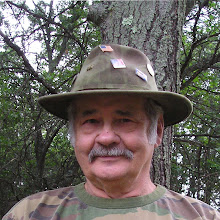Farmers, as I have said before, are the last people that will intentionally mess up the environment. The great majority of them realize that if they do, they will lose their method of making a living. Probably no one knows better the value of good soil, pure water and clean air. These art the things that allow them to grow good crops, feed their families and make a living. Most farmers truly love the land and treat it better than many other people, including many pseudo-environmentalists, do. Some of that is changing with the influx of "factory farms". some of these farms are owned by large corporations and the people that own the farm never even see it. They have no idea of how the farm is being run or much else about it. Managers are hired, workers are hired and to all of these people, farming becomes just a job. The people who own the farm are concerned about only one thing: the bottom line. This can present a problem because the manager and the employees are also only concerned about one thing: keeping their respective jobs. This may cause them to do thing that a resident farmer would not do beingemployees rather than land owners and farmers makes them react to problems differently. What it all boils down to is that when looking at farming and the environment, we may have to look at family farms different than factory farms.
There are a lot of differences of opinion as to what constitutes a family farm and what a factory farm is. For this book I will be using the term factory farm for the large farms owned by some entity other than the resident landowner. I will use the term family farm for farms, no matter how large or small, that are owned and operated by a person or family that actually resides on the land and is responsible for the day to day operation of the farm. there is a third group of farmers that I will also mention and this group I will refer to as subsistence farmers. these are farmers, who by today's standards have very small farms and probably have an outside job to help support their family. These people, like the larger family farmers truly love the land. They may even have more love and respect for the land than the person who farms the larger acreage and makes their entire living at it. Why else would they put up with the long hours and hard work, even though they need an outside job to support their family? The difference between the subsistence farm and a hobby farm is that on the subsistence farm the owner is adding product to the food chain and attempting to earn at least part of their living from it, whereas the hobby farmer usually is not.
Please visit my other two blogs.

No comments:
Post a Comment